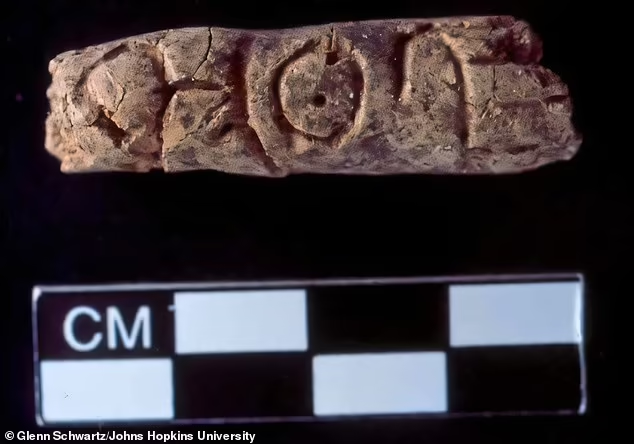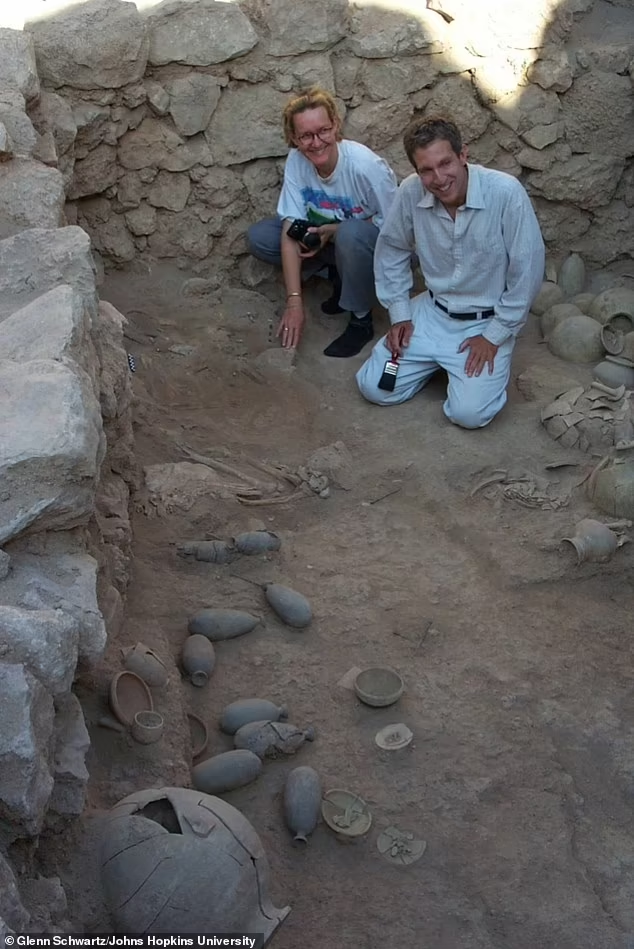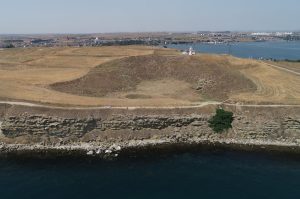
The markings on a 4,400-year-old clay cylinder found in a grave may represent an example of the world’s oldest alphabet
Humans discovered writing through the Sumerians in Mesopotamia. A series of symbols inscribed on clay tablets is considered the beginning of writing. Over time, these symbols evolved in the hands of scribes, transforming into a more easily writable form, which became the alphabet.
The creators of the alphabet are believed to be ancient Egyptian scribes.
However, clay cylinders excavated from a grave in the ancient city of Tell Umm-el Marra, located on the border of present-day Türkiye and Syria, have pushed this history back by 500 years.

The discovery was made by researchers at Johns Hopkins University. The researchers state that the oldest known alphabetic text has been inscribed on the small clay cylinders.

In one of the best-preserved graves, six skeletons were found along with gold and silver jewelry, cooking vessels, a spearhead, and intact pottery.
Next to the pottery, there were four lightly fired clay cylinders or tubes that appear to have alphabetic inscriptions on them.

“The alphabetic writing changed the way people lived, thought, and communicated,” he said. “This new discovery shows that people were experimenting with new communication technologies much earlier and in a different context than we had imagined.”
Professor Schwartz stated, “Previously, scientists believed that the alphabet was invented in Egypt or its vicinity after 1900 BCE. However, the artifacts we have are older and come from a different region on the map. This suggests that the origin story of the alphabet may be completely different from what we thought.”
He added, “The cylinders were perforated, so I imagine a string that would attach them to another object serving as a label. Perhaps they provide detailed information about the contents of a ship, or maybe they indicate where the ship came from or to whom it belonged.”
Professor Schwartz stated, “Without a tool to translate the writing, we can only speculate.”
Professor Schwartz presented the findings at the 2024 American Society of Overseas Research (ASOR 2024) annual meeting.
You may also like
- A 1700-year-old statue of Pan unearthed during the excavations at Polyeuktos in İstanbul
- The granary was found in the ancient city of Sebaste, founded by the first Roman emperor Augustus
- Donalar Kale Kapı Rock Tomb or Donalar Rock Tomb
- Theater emerges as works continue in ancient city of Perinthos
- Urartian King Argishti’s bronze shield revealed the name of an unknown country
- The religious center of Lycia, the ancient city of Letoon
- Who were the Luwians?
- A new study brings a fresh perspective on the Anatolian origin of the Indo-European languages
- Perhaps the oldest thermal treatment center in the world, which has been in continuous use for 2000 years -Basilica Therma Roman Bath or King’s Daughter-
- The largest synagogue of the ancient world, located in the ancient city of Sardis, is being restored











Leave a Reply